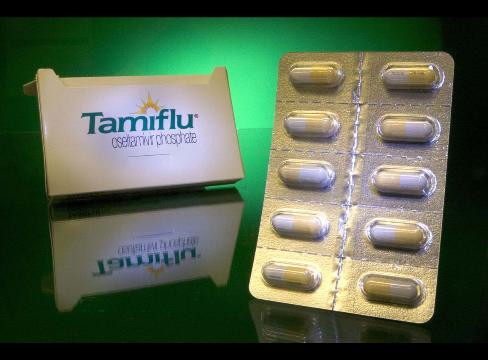Posted by: Samker
« on: 17. November 2009., 07:01:49 »
Criminal gangs are making millions of dollars out of the H1N1 flu pandemic by selling fake flu drugs over the internet, a web security firm said on Monday.
Sophos, a British security software firm said it had intercepted hundreds of millions of fake pharmaceutical spam adverts and websites this year, many of them trying to sell counterfeit antiviral drugs like Tamiflu to worried customers.
Tamiflu, an antiviral marketed by Switzerland's Roche Holding and known generically as oseltamivir, is the frontline drug recommended by the World Health Organization to treat and slow the progression of flu symptoms. GlaxoSmithKline makes another antiviral for flu, known as Relenza.
Sophos said many of the gangs behind the sites were based in Russia and the top five countries buying fake Tamiflu and other medicines on the internet were the United States, Germany, Britain, Canada and France.
Sophos spokesman Graham Cluley said a "worrying trend" toward stockpiling Tamiflu had already been seen in Britain — Europe's worst-hit country in the H1N1 pandemic so far.
"As more and more cases of swine flu....come to light, it is essential that we all resist the panic-induced temptation to purchase Tamiflu online," he said.
"The criminal gangs working behind the scenes at fake internet pharmacies are putting their customers' health, personal information and credit card details at risk."
The Geneva-based WHO, which declared H1N1 swine flu a pandemic in June, updated its guidance to doctors last week to say that antiviral drugs should be given even before tests conclude that an at-risk patient has the pandemic virus.
Sophos said criminal gangs were operating medicines websites branded as the "Canadian Pharmacy" to try to appear genuine.
It said its research showed that on one network operated out of Russia, called Glavmed, it was possible to earn an average of $16,000 a day promoting pharmaceutical websites.
"But the criminals can be members of more than one affiliate network, and some have boasted of earning more than $100,000 per day," it said in a statement.
The pandemic H1N1 flu virus has now spread to 206 countries since it was first discovered in March. There have been more than 6,250 deaths to date, mostly in the Americas region, according to the latest WHO toll.
(FOX)



 Total Members: 14176
Total Members: 14176





